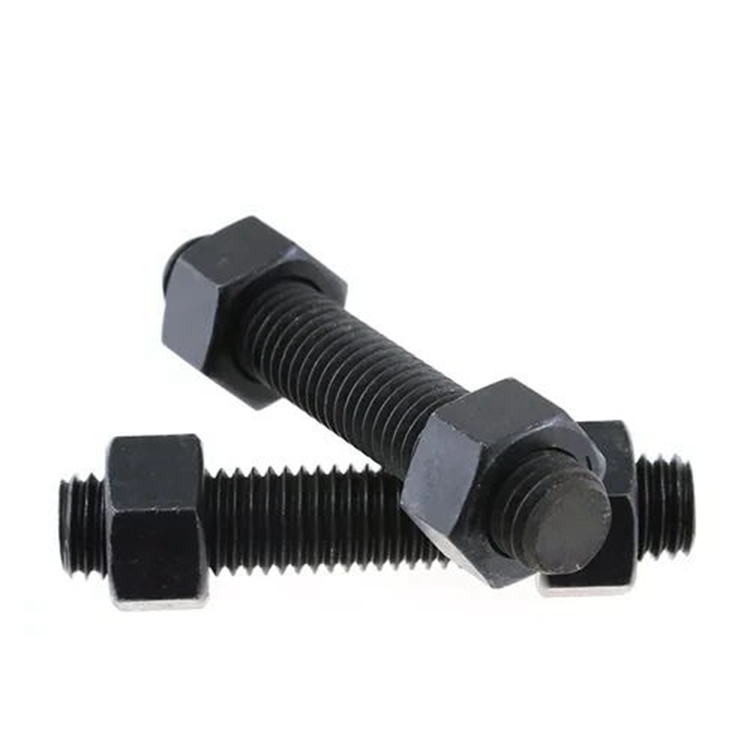Exploring the World of Renowned 6mm Bolts for Reliable Fastening Solutions in Engineering Applications
Jul . 31, 2024 21:02 Back to list
Exploring the World of Renowned 6mm Bolts for Reliable Fastening Solutions in Engineering Applications
The Significance of Famous 6mm Bolts in Engineering and Construction
When it comes to fastening components and structures together, few items hold as much importance in engineering and construction as the humble bolt. Among these, the 6mm bolt has gained fame for its versatility, strength, and reliability. Understanding the applications and benefits of 6mm bolts can provide insights into why they are essential in both industrial and residential projects.
The Basics of 6mm Bolts
A 6mm bolt, with its nominal diameter of 6 millimeters, is typically used in various mechanical and architectural applications. These bolts come in various grades, lengths, and finishes to suit specific tasks, whether it involves joining steel beams in a skyscraper or securing elements in household furniture. The metric measurement of 6mm corresponds to approximately 0.236 inches, making it an ideal option for applications requiring a compact fastening solution without compromising strength.
Versatile Applications
One of the standout features of 6mm bolts is their versatility. They can be found in automotive construction, where they are essential for securing engines and other components. In the electronics industry, 6mm bolts are often used to fix circuit boards and casings, ensuring that sensitive components remain stable and protected from operational vibrations.
In the realm of furniture assembly, 6mm bolts provide the necessary support for items like tables, chairs, and cabinets, facilitating both assembly tasks and maintenance. Their ability to provide a strong connection while being easy to install makes them a go-to choice for both DIY enthusiasts and professional manufacturers.
famous 6mm bolts

Material and Types
The material of the bolts significantly influences their performance. 6mm bolts can be made from various materials, including carbon steel, stainless steel, and alloy steel. Stainless steel bolts are particularly renowned for their corrosion resistance, making them ideal for outdoor applications or environments where moisture is a concern. Meanwhile, high-strength steel bolts can withstand greater loads, which is especially important in construction.
Different types of 6mm bolts, such as hex bolts, carriage bolts, and shoulder bolts, provide flexibility depending on the specific needs of the project. For example, hex bolts often feature a hexagonal head allowing for easy tightening with a wrench, while carriage bolts have a rounded head that is often used in wood applications to prevent pulling through.
The Importance of Specifications
When working with 6mm bolts, adhering to specifications is crucial. Engineers must consider factors like tensile strength, yield strength, and shear strength to ensure that the chosen bolt will adequately withstand the loads and environmental conditions it will face. Furthermore, understanding the appropriate locking mechanisms, such as washers and nuts, is essential in maintaining the integrity of the fastening over time.
Conclusion
In summary, the 6mm bolt is a small yet mighty component that plays a significant role in various industries. Its versatility, range of materials, and suitability for different applications make it a staple in engineering and construction. As projects become increasingly complex, the significance of securing components reliably with well-designed and accurately sized fasteners like the 6mm bolt cannot be overstated. Whether you are building a large-scale structure, assembling electronic devices, or engaging in DIY home projects, understanding and utilizing the right type of bolt—like the famous 6mm bolt—can lead to more durable and reliable outcomes. Thus, it is clear that the legacy of the 6mm bolt will continue to thrive as modern engineering advances.
Latest news
-
High-Quality Panel Stud Bolt Reliable Panel Stud Bolt Factory & Suppliers
NewsJul.08,2025
-
High-Precision Fine Thread Locknuts Manufacturer & Supplier Custom Solutions
NewsJul.08,2025
-
PH Imperial Stud Bolt – High Strength Fasteners from Leading Supplier & Factory
NewsJul.07,2025
-
High-Quality Allen Wrench Bolts Leading Factory, Company & Suppliers
NewsJul.07,2025
-
Wholesale Ball Stud Bolt - High Quality Supplier & Factory Price Reliable Wholesale Ball Stud Bolt Company
NewsJul.06,2025
-
High-Strength Alloy Bolts Manufacturer & Supplier Quality Alloy Fasteners Factory
NewsJul.06,2025
